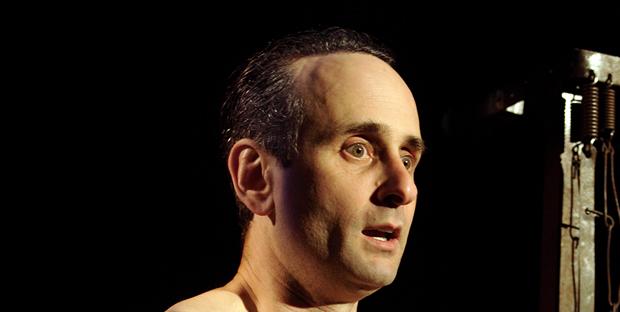THEATRE
Showing @ Assembly, until 28 Aug @ 5:05pm
Kafka‘s style is so unique and revolutionary that works with the same indefinable but undoubted absurdity can only be described as “Kafkaesque”. Through the many interpretations of his symbolism-heavy writings, Kafka’s inner-most self is most revealed not through his tales, but in his letter to his father. Adapted for the stage by director Mark Cassidy and performer Alon Nashman, Kafka and Son gives a unique and intimate insight into Kafka the man as opposed to Kafka the writer, bringing to life the letter that his father never read.
The issue of how children interpret their parents is something that, at least in snippets, everyone will be able to identify with. It’s fascinating how Kafka considers even the minutiae of his father’s behaviour as having a massive impact on him and being responsible for stunting his emotional development; it seems to be a resentment that he simply cannot let go of. These are, like in many families, two completely opposite people thrown together by nothing but inescapable chance, harbouring a life-long inability to ever understand one another.
Such tragedy is inherent in the script, but it is Nashman’s moving performance that really gives the play a thoroughly human element. Full of child-like vulnerability, Nashman manages to enthral the audience despite the overtly depressing subject matter. Marysia Bucholc and Camelia Koo’s set is stark, eery and never remains static, perfectly reflecting the narrative development of the play. Combined with Andrea Lundy’s lighting, the stage constantly merges from a physical representation to a metaphorical one and back again, never ceasing in projecting Kafka’s feelings of entrapment, nor his literary style. Some of the shadows that are created against the back of the stage are breathtaking, with Kafka’s father looming as a giant benevolent shadow over his weak, slight son. The music, composed by Osvaldo Golijov, is full of often unbearable emotion, with strings that scream right through the soul in agonising pain. With such a complex literary figure being made accessible in a way that so fully utilises the possibilities of the stage, this is faultless theatre that must not be missed.


Comments